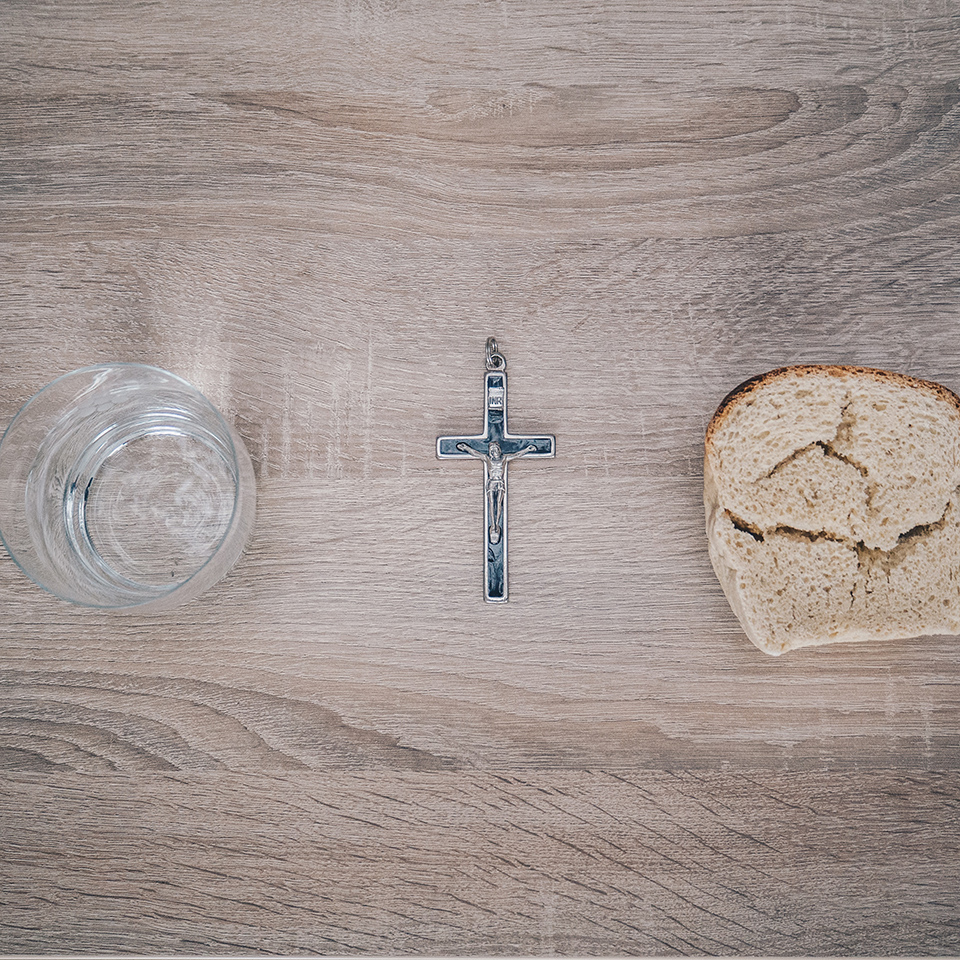Fasting is among the oldest religious practices in history. Nowadays, however, in a society that is dictated by consumerism, materialism and an overall lack of self-restraint, the discipline of fasting is widely unappreciated. The Catholic Church remains one of the few institutions on earth to uphold its dignity and assert its importance in the spiritual life. So, we must ask: Why is Mother Church so adamant about this ancient custom and what are its origins?
St. Basil the Great in his Lenten homilies notes that fasting is as old as humanity itself. As a matter of fact, it was the first command human beings received from God: “You shall not eat from the tree of the knowledge of good and evil” (Gen. 2:17). According to Basil, it was a failure to fast that led to the fall in Eden. As such, fasting is among the remedies to reacquire the original dignity of our identity as God’s children: “It is because we did not fast that we were banished from paradise. So let us fast that we may return to it” (First Homily on Fasting cir. fourth century). In this primordial mandate to fast, Basil recognizes a dual-faceted purpose. Firstly, it aids the soul in acquiring maturity. As any psychologist will recognize, lack of discipline and self-control are clear signs of immaturity. The failure to be patient, make wise decisions, and responsibly enjoy food, drink, or relationships represents a severe lapse in human development. This is why practicing self-restraint on a regular basis through fasting is so crucial to the spiritual life. It is not just about giving something up because the Church says so. The more we practice abstinence, the more mature we become, passing from the immaturity of immediate gratification to the maturity of regulated consumption. For fasting is “the companion of sobriety and the craftsman of self-control” (Ibid.).
Thus, fasting helps to foster one virtue in particular—namely, self-control, a quality not often spoken about in our own time. St. Paul identifies it as one of the fruits of the Holy Spirit: “The fruit of the Spirit is love, joy, peace, patience, kindness, goodness, faithfulness, gentleness, and self-control” (Gal. 5:23). The Greek word used by Paul is egkrateia (ἐγκράτεια) which is composed of two other words, en meaning “from within” and kratos from a root meaning “to perfect.” Thus, to have self-control is literally “to perfect oneself from within.” This definition helps us better appreciate St. Basil’s second assertion about the consequences of fasting.
According to Basil, fasting properly orders the appetites of our body to the good of our soul: “The more you deny the flesh, the more you render the soul radiant with spiritual health” (Second Homily on Fasting, cir. fourth century). Here we see the influence of the Desert Fathers on Basil’s spirituality. These early Christians were adamant on reclaiming the dignity lost by Adam in Eden. They recognized Adam’s fault to be a failure of discipline. He gave into his baser desires and lost sight of humanity’s lofty vocation as imago Dei (the “likeness and image of God”). Thus, monks like Abba John (525 AD), therefore, will warn: “One should always guard against attachment [to worldly things]; for this is what is harmful to the soul.”
Jesus himself teaches that “man does not live on bread alone” (Matt. 4:4). Human beings are not animals. We have appetites beyond the carnal. Our wills are not driven by mere instinct. There is supposed to be a deeper reason for our actions. When my stomach hungers from fasting, it is a reminder of the spiritual hunger my soul experiences at every moment of my existence. This is also the logic behind fasting before reception of Holy Communion. Through the pre-Eucharistic fast, my body’s hunger is temporally fused to my soul’s hunger for Christ in the Blessed Sacrament.
The soul is constantly aching for the mercy and goodness of God. Are we feeding this ache or letting our souls starve? Are we nourishing our spirits with the rich food of the Eucharist, sacrament of Reconciliation, Sacred Scripture, and contemplative prayer? We know that fasting was an integral part of Jesus’ life, so much so that he spent forty days in the desert abstaining from worldly sustenance. Nothing the Lord does is coincidental or unplanned. Every event of his life teaches us something profound about our own existence as persons and our vocation as Christians. In Christ’s fasting, we see a way by which to share in the divine life of God. By growing in self-control from our immature impulses and properly nourishing our souls through fasting, we will surely grow in intimacy with the Lord who loves us.
